Introduction
The price of full-mouth dental implants in 2025 is something many more potential patients are considering to making their decision. Full mouth dental implants are a permanent, strong, and life-like alternative to dentures, providing a permanent solution to missing teeth.
But how much do full mouth dental implants cost? That’s the focus of this post: a detailed breakdown of full mouth dental implants cost in 2025! Discover pricing considerations, secret charges, financing plans, and ways to save money on your treatment. Also, find out expert Tip: Find out the full cost estimate before making a decision!
What Are Full Mouth Dental Implants?
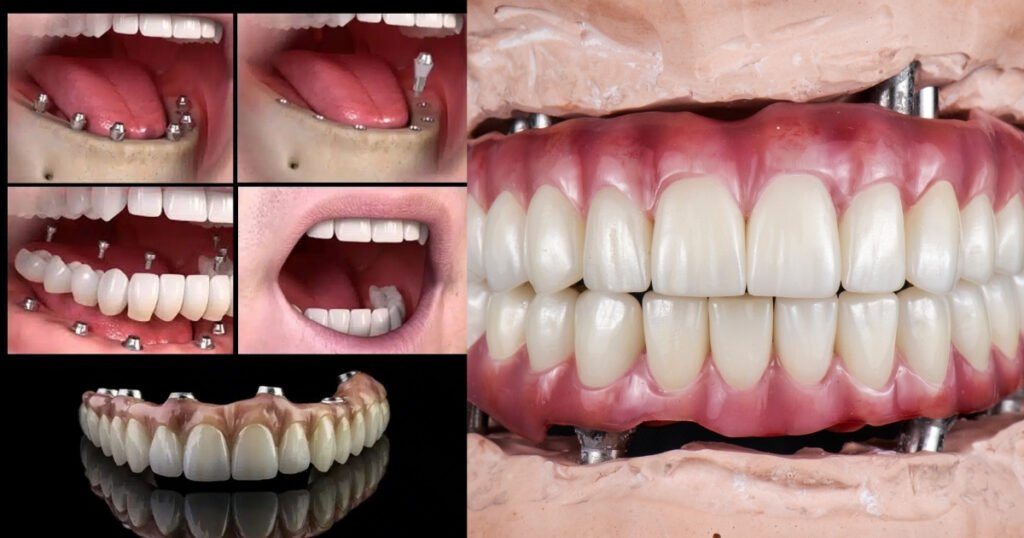
Full mouth dental implants restore all of your missing teeth with the use of artificial tooth roots (implants) that support fixed or removable prosthetic teeth. They’re more stable than conventional dentures and help to maintain bone in the jaw.
Types of Full Mouth Dental Implants
- All-on-4 Implants: Utilizes four implants to secure an entire arch of teeth.
- All on 6 Implants: Utilizes six implants for more stability and longevity.
- All-on-8 Implants: All-on-8 implants use eight dental implants, which are the most stable of the treatment options.
- Single Implants: Each missing tooth is replaced with its own implant and crown.
Cost of Full Mouth Dental Implants in 2025
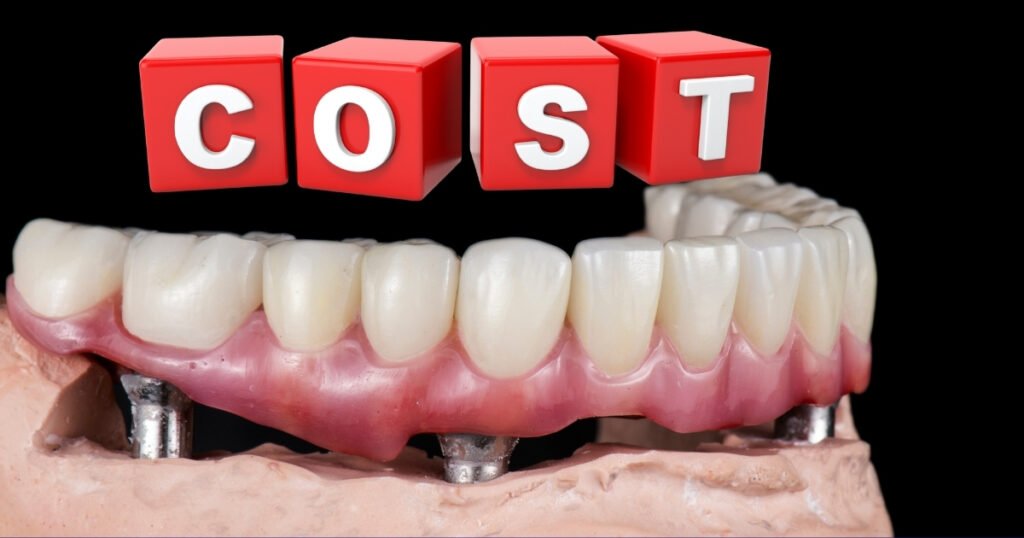
The price of dental implants can depend on the type of implant you get, the location of the clinic, and any other additional treatments you may need. Here is the detail breakdown:
Average Cost of Full Mouth Dental Implants in 2025 2025
| Implant Type | Estimated Cost (USD) | Estimated Cost (INR) |
|---|---|---|
| All-on-4 Implants | $15,000 – $30,000 per arch | ₹12,50,000 – ₹25,00,000 |
| All-on-6 Implants | $20,000 – $40,000 per arch | ₹16,50,000 – ₹33,00,000 |
| All-on-8 Implants | $25,000 – $50,000 per arch | ₹20,50,000 – ₹41,00,000 |
| Individual Implants | $3,000 – $6,000 per tooth | ₹2,50,000 – ₹5,00,000 |
Note: Price is an estimate only and can vary depending on the location, clinic, material, and depth of folding.
Factors Affecting Full Mouth Dental Implants Cost
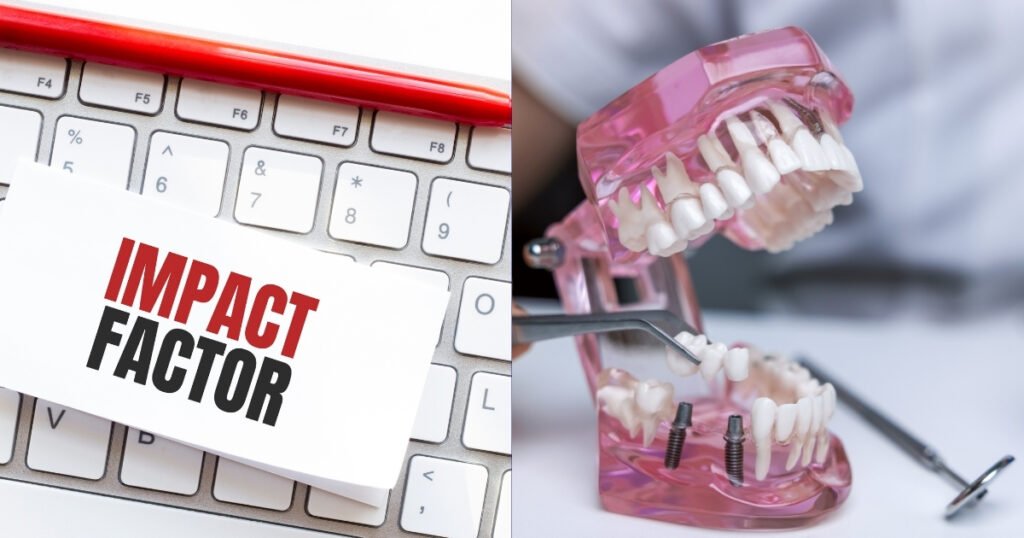
Several factors determine the final cost of full-mouth dental implants:
1. Number of Implants Needed
- The fewer the implants (All-on-4), the lower the cost; the more the implants (All-on-6, All-on-8), the higher the cost.
2. Type of Material Used
- Titanium implants are standard, and zirconia implants (no metal) are expensive.
- Acrylic prostheses are more affordable than porcelain or zirconia prostheses.
3. Additional Procedures Required
- Bone Grafting – $500 – $3,000 (₹41,000 – ₹2,50,000): In case your jaw bone is not dense enough, then this is additional you might have to shell out.
- Tooth Extractions: For user teeth replacement, the cost of removing the existing teeth ranges between $100 – $500 per tooth ($8000 to $41,000).
4. Geographical Location
- Dental implant pricing in the US, UK, and Australia is way more expensive as compared to India, Mexico, or Turkey.
5. Dentist’s Experience and Reputation of The Clinic
- Highly experienced implant specialists charge more than general dentists.
Cost Comparison by Country in 2025

| Country | Average Cost for Full Mouth Implants (USD) |
|---|---|
| USA | $25,000 – $50,000 |
| UK | $20,000 – $45,000 |
| Canada | $22,000 – $48,000 |
| India | $5,000 – $15,000 |
| Mexico | $7,000 – $18,000 |
| Turkey | $6,000 – $16,000 |
India, Mexico, and Turkey offer cost-effective options with high-quality treatments, making them popular for dental tourism.
Payment and Financing Options

Full mouth dental implants are expensive, but various financing options make them more accessible:
1. Dental Insurance
- Insurance only covers a portion of the cost: It is typically capped, ranging from $1,500 to $3,000 a year.
- High-end dental plans may cover 50% of implant expenses.
2. Payment Plans
- Most of the clinics provide interest-free EMI options from 12-24 months.
3. Dental Tourism
- The cost would be reduced 50-70% by having the procedure done in India, Mexico, or Turkey.
4. Health Savings Accounts (HSA) and Flexible Spending Accounts (FSA)
- United States residents are eligible to use an HSA or FSA to pay for the cost of the implants.
Step-by-Step Full Mouth Implant Procedure
Step 1: Consultation and Planning for the treatment
- 3D scans and X-rays to assess jawbone density.
Step 2: Extracting Teeth and Bone Grafting (if required)
- Healing period: 3-6 months if bone grafting is required.
Step 3: Surgery to Place the Implant
- The jawbone is screwed with titanium or zirconia implants.
- Recovery time: Between 3-6 months for the process of osseointegration (bone fusion).
Step 4: Placing the Abutment and Prosthetic Teeth
- Implants are connected with abutments (connectors).
- Artificial teeth are then either permanently or temporarily inserted.
Step 5: Follow-Up and Maintenance
- Routine examinations provide stability for implants.
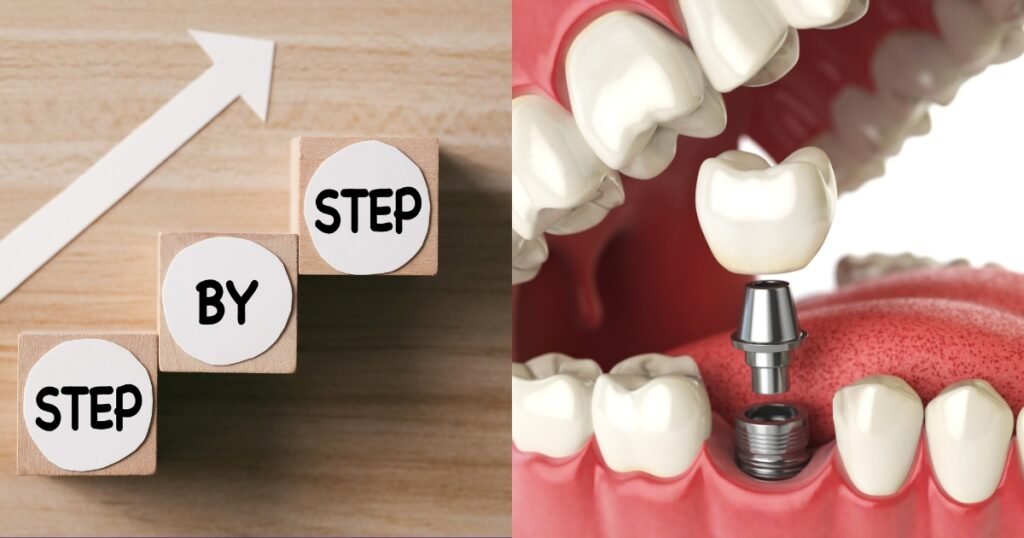
Will Insurance Pay for Full Mouth Dental Implants in 2025?
Among the most commonly asked things is whether the dental insurance covers a full set of dental implants. Some insurance plans offer partial coverage in 2025, but most full coverage dental insurance policies do not cover the cost of the entire full mouth dental implants. Patients may investigate payment plans to reduce the cost of full-mouth tooth implants.
Affordable Options for Full Mouth Dental Implants

For those concerned about the cost of full mouth dental implants, several financing and discount options are available:
- Dental Discount Plans – Some clinics also have discount plans for full mouth dental implants.
- Payment Plans – Monthly payment plans make it easier for you to afford full-mouth dental implants.
- Dental Schools – A few schools will offer full-mouth dental implants at a reduced rate.
- Medical Tourism – Countries such as Mexico and Turkey offer cheap full-mouth dental implants.
Why are Full Mouth Dental Implants So Expensive?
Full mouth dental implants are expensive because they need multiple advanced procedures, they require the involvement of highly skilled specialists, and there’s no other way about it other than using the best materials. Unlike removable dentures, full-mouth dental implants require a one-time investment with little need for maintenance.
Pros and Cons of Full Mouth Dental Implants
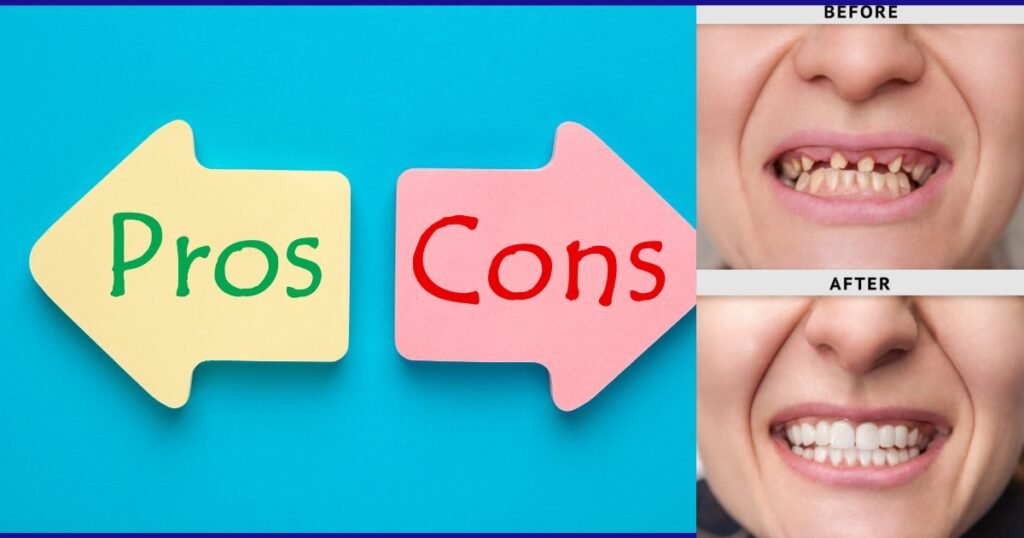
Pros:
- Permanent-Fix (can last 20+ years).
- Maintaining your jawbone and your facial structure.
- Appearance and feeling look like your natural teeth.
- No glues as with dentures.
Cons:
- High initial cost.
- Needs surgery and an extended period off the field to recover.
- Not appropriate for patients with extreme bone loss or some medical conditions.
Alternatives to Full-Mouth Dental Implants
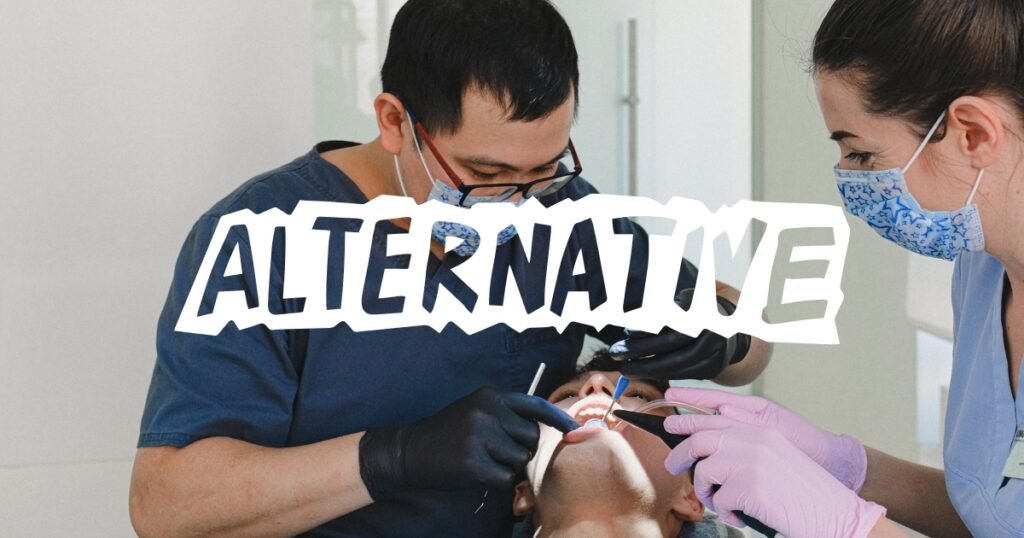
| Alternative | Description | Cost (USD) |
|---|---|---|
| Traditional Dentures | Removable, lower-cost option | $1,000 – $3,000 |
| Implant-Supported Dentures | Fixed replacement requires healthy adjacent teeth | $5,000 – $15,000 |
| Dental Bridges | Fixed replacement, requires healthy adjacent teeth | $2,000 – $5,000 |
Conclusion
Full mouth dental implants are a life-changing investment and the best solution for missing teeth in 2025. Though it can cost between $15,000 and $50,000 per arch, alternatives to pay out of pocket, like financing and dental tourism, help make it more accessible. If you’re interested in full mouth dental implants, check with a prosthodontist or a board-certified implant specialist who can help you develop the ideal treatment plan for your situation.
FAQ On Full Mouth Dental Implants Cost
General Questions About Full-Mouth Dental Implants
Are full-mouth dental implants worth it?

Yes, full mouth dental implants are worth it, as they offer a strong, permanent, natural-looking, and functional form of tooth replacement. They help to preserve bone structure, aid in chewing, speech, and facial integrity, making them far superior to dentures. They are better than partial dentures as they do not put additional stress on existing teeth or gums.
Benefits of Full Mouth Dental Implants:
Durability – Will last 20+ years if cared for.
Realistic Look – Feels and looks real.
Improved Chewing Ability — Unlike dentures, there are no food restrictions with dental implants.
Health – Ensures bone health and prevents jawbone loss.
Excellence in Speech – Without slip or click sounds.
Long Term Investment — More expensive in the beginning, but with fewer replacements needed than dentures.
Boosts Confidence – Makes for a better Smile and also boosts self-confidence.
The price is steep, but many patients say they’re life-changing, which seems worth it.
What is the downside to dental implants?

The disadvantages of dental implants are major expense, the time involved to achieve osseointegration (healing), and potential complications such as infection or fixture failure. It’s not for everyone, particularly people with severe bone loss or medical issues.
Potential Disadvantages:
It’s costly – You’re looking at a price tag of $20,000–$60,000 if you want full mouth implants.
Operation – Often must be performed in several operations with healing time in between.
Recovery Takes Months – Complete recovery takes between 3–12 months.
Risk of Failure: Increased risk of failure with smoking, diabetes, or poor bone stock.
Potential Pain and Swelling – Minor soreness post-surgery.
Needs to Be Taken Care of properly – Slack maintenance results in infections.
Implants are the most ideal system for replacing a full mouth of missing teeth in the long term, even with these issues.-term tooth replacement option.
How painful is a full set of implants?

Dental implant surgery itself doesn’t actually cause that much pain since you are under anesthesia, but you can expect mild to moderate pain during the healing process.
Pain Levels & Recovery:
In Surgery, Pain is blocked under local or general anesthesia.
Initial 48 hours – Swelling and pain will be at their worst, but very bearable with pain relief.
One Week Later, Discomfort diminishes, and baby food is back.
Complete recovery – Takes 3-6 months, with minimal pain after 1-2 weeks.
Pain Control – Nonprescription or prescription medicines to ease the symptoms as you recover.
Good care and adherence to your dentist’s advice will reduce the amount of discomfort.
How long does it take to get full mouth dental implants?

A full mouth implant will take anywhere from 3-6 months on average; however, for complex cases could take as long as a year.
Full Mouth Implants Timeline:
Consultation & Planning – up to 1 – 2 visits for examination and scanning.
Impressions (if no extractions required) – healing 2 weeks to 2 months.
Implant Placement – 1-2 hours per arch, under anesthesia.
Osseointegration – The healing process, ranging from three to six months, in which the dental implant will bond with the jawbone.
Abutment & Crown Placement – The completed teeth are installed once healing is complete.
Some patients are eligible for same-day implants, while traditional implants require more time for overall stability.
Is it hard to eat with full dental implants?

No, full mouth dental implants is not a problem after the recovery period. Initially, a soft normal diet is advised but implants restore normal chewing function.
Eating with Dental Implants:
1-3 Days – Soft Foods for the first few days – Soft foods, for example, yogurt, mashed potatoes, even smoothies.
2 Weeks – Start feeding cooked vegetables, pasta, and eggs gradually.
Post Healing (3-6 months): Eat regular foods again, even if crunchy or chewy.
No Limitations – Implants do not have the same restrictions as dentures do.
Chewing is Comfortable – Implants work like natural teeth.
Eat what you want again without worrying or suffering uncomfortable food restrictions with implants.
How many teeth do you get with full dental implants?

A complete mouth dental implant is the restoration that normally replaces all of the 28 functional teeth (excluding wisdom teeth). Implant-retained dentures are typically 4-8 implants per arch with a fixed bridge.
Number of teeth in a full mouth implant:
Individual Full Implants – replacing 28 teeth with 28 individual implants.
All-on-4 or All-on-6– 4 to 6 implants per arch holding 14 teeth in each jaw.
Hybrid Dentures – 4 to 8 implants per arch for an entire set.
Zygomatic Implants (Fewer implants but achieves a full set). If you need to look at other options, Judge for yourself…
Personalized – Quantity depends on bone health and jaw shape.
Your dentist can advise on which method is best for you.d the best option based on your needs.
Can you chew gum with full mouth dental implants?

Yes, you can chew gum with full mouth dental implants once they have fully healed. Make sure you steer clear of sticky or sugar-filled gum to guarantee the longevity of your implants.
Gum Chewing with Implants
Be Patient with Recovery – Stay away from gum for at least 3 to 6 months after your surgery.
Chew Some Sugar-Free Gum – Helps to minimize plaque formation and improve oral condition.
Stay Away from Sticky Gum – It can pull crowns off and chip.
Chew Slowly in the Beginning – With practice, 1-2 big bites can be comfortable.
Frequent Cleaning: Prevents gum-related bacteria from building up.
Discuss the appropriate chewing habits for implants with your dentist.
Who should not have dental implants?

Implants might not be an option for people with severe bone loss, uncontrolled diabetes, heavy smokers or individuals who have difficulty maintaining oral hygiene.
Who Should Avoid Implants?
Significant Bone Loss – Implants have no grip without grafting.
Uncontrolled Diabetics – Diabetics will tend to heal more slowly and are more prone to infections.
Heavy Smokers are more likely to fail with implant integration because of healing issues.
Gum Disease: Live infection destroys bone.
A compromised immune system, such as autoimmune diseases, can influence the healing process.
A dentist can decide if it is possible,e according to the overall health of the patient.
What makes dental implants medically necessary?

Medically necessary dental implants are absolutely necessary when tooth loss has caused bone loss, an inability to comfortably chew or speak, or has become a hindrance to other basic daily activities.
When Implants Are Needed:
Prevention of Bone Loss – Lost teeth result in loss of jawbone.
Chew & Digest Problem – Result in malnutrition.
Speech – Gaps between teeth can impact your enunciation.
Facial Structure Loss – Avoids sunken cheeks and signs of aging.
TMJ issues or Chronic pain – Restore a natural bite balance with implants.
The decision is made by a doctor according to the condition of your teeth and oral health.
Are dental implants painful?

Dental implants are not painful at all during the surgery and the recovery process because of anesthesia, but there will be mild swelling and discomfort as the implant heals and fuses with the bone.
VRS of Pain in Implant Procedure:
In the Operating Room – You are not feeling any pain because you are generally asleep (unconscious) or heavily sedated, if you prefer , during the procedure.
Initial 48 Hours –Some swelling and tenderness.
Pain Treatments – Meds prescribed or OTC meds do the job.
Recovery Time – 3 to 6 months, where the ache disappears within a few weeks.
Pain Passes with Good Care – Follow post-op orders.
The majority of patients have an uneventful, relatively painless recovery.
Cost-Related Questions On Full Mouth Dental Implants Cost
What is the average cost of a full set of dental implants?

A full set of dental implants costs between $20,000 and $60,000, based on factors such as the type of implant, where the implant is placed and what additional procedures, such as tooth extraction, may be required. There are cheaper options abroad.
Cost Breakdown:
All-on-4 Implants: Between $20,000 and $40,000
Complete Individual Implants: $50,000 to $80,000
Implants in Mexico/Turkey: $10,000 – $25,000
Hidden Costs: Grafts, extractions, and post-op visits.
Insurance may help cover costs, and financing plans can ease the burden of payments.
Why do full mouth dental implants cost so much?

Full-mouth implants are costly, mainly because of quality material, surgical expertise, and lab work needed for customized teeth.
Reasons for High Costs:
High Quality Materials – Titanium and zirconia are strong and expensive.
Degree of Invasiveness – Surgery must be serial and meticulous.
Lab Fees – Custom prosthesis requires high-level manufacturing technology.
Specialist Fees – Oral surgeons and prosthodontists are more expensive.
Post-Surgery Care – Follow Up Visits and Adjustments = More Costs, peace of mind.
Implants are expensive, but a long-term investment in oral health.
How much does it cost to get all your teeth pulled and get implants?

In the United States, pulling all teeth and replacing them with implants ranges from $30,000 to $70,000 per arch. Additional costs may arise from bone grafting and anesthesia.
Breakdown of Costs:
Tooth Extractions – $75 to $300 per tooth.
Bone Grafting (if necessary) – $200 – $3,000.
Full-Arch Implants – $25000 to $60000.
Anesthesia and Follow-Ups – $1,000 to $5,000.
Insurance Coverage – Typically covers the extractions and not the implants.
Talk with your provider about payment plans or medical financing options.
How much is a full mouth of dental implants in Turkey?

A mouthful of dental implants in Turkey runs from $4,000 to $15,000, much less expensive than in the U.S., where both clinic fees and living expenses are higher. Lots of clinics combine surgery, lodging, and transportation into one price.
The Reasons Why Turkey’s Costs Are So Low:
Lower Labor Costs – Dentists make less than in the Western world.
Government Support – Turkey encourages medical tourism, and tax is deducted.
Premium Materials – Utilizes implants approved by the FDA, such as Straumann and Nobel Biocare.
Clinical Skills – Many centers embrace European and US standards.
Comprehensive Packages – From consultation, surgery to aftercare.
Always select a certified dental clinic with an expert dentist for safe treatment.
How much do permanent tooth implants cost for a full mouth?
Full mouth dental implants vary between $25,000 to $60,000 per arch in the US (for both arches) when you get the procedure done here, but the costs somehow even double for full mouth dental implants.
Permanent Teeth Implants Cost Details:
All-on-4 Implants – $20,000 to $40,000 per arch.
All-on-6 or All-on-8 – $30,000 to $60,000 per jaw.
Bone Grafting (if necessary) – This usually costs an extra $2,000 to $5,000.
Material Type – Titanium material is less expensive than zirconia.
Location & Specialist Fees – Prices differ from one area to the next, and depending on your dentist’s credentials.
Most dentists have payment plans or financing options that can make implants manageable and affordable.
How much does it cost to get permanent teeth put in your mouth?
Permanent teeth implants run $1,500 to $6,000 each, and full-mouth replacement costs $25,000 to $100,000. The cost is dependent on the type of implant, the material, and other procedures such as bone grafts.
Factors Affecting Cost:
Cost of Single Implant – $1,500 to $6,000 (Including The Crown).
Full-Arch (All-on-4) – $20,000 to $40,000 per arch.
Implant Cost –Price Variability Based on Type of Prosthetic (custom porcelain or zirconia)
Surgical Factors – Bone grafts and removals add to the price.
Insurance & Financing – Minimal insurance, but no monthly payment plans.
Discuss your treatment options with your dentist, who will offer several possible treatments or something more cost effective.
What does a full mouth of implants cost?
An entire mouth of dental implants can cost tens of thousands of dollars, depending on the implant type, material , and who’s placing them. Factors such as All-on-4, All-on-6, and full single implants will play a role in pricing.
What Are the Costs of Full-Mouth Implants?
All-on-4 Implants Prices ($20,000 to $40,000 per arch).
All-on-6 or All-on-8 — $30,000 to $60,000 per arch.
Individual Implants – $60,000 to $100,000 for a full set.
Material Choices – Titanium implants are less expensive compared to zirconia.
Other Treatments – Bone grafting or extractions will cost an additional $2,000 to $5,000.
Geographic Location – Mexicans and Turks pay much more than in the USA.
Most clinics can offer payment plans or financing to make implants more affordable.
How much do dental implants cost in Mexico?

dental implants are less expensive in Mexico, with a full set of implants per arch costing anywhere from $10,000 to $25,000 less in the U.S. than in Mexico, where costs for labor and maintaining a facility are lower.
What is the cost of implants in Mexico compared to the U.S., and why are they so cheap?
Affordable Dentist Fees – The Price of Living is lower , of course, than expensive quotations.
Price Quality Material Local Costs – High-quality material service at a reasonable price.
Dental Tourism – Attractive pricing to entice international patients.
Same as the U.S..But, before you travel, ensure the clinic is well-reviewed and the clinicians are certified.
Insurance and Affordability Related Questions On Full Mouth Dental Implants Cost
Does insurance cover full mouth dental implants?

Full mouth implants are usually not completely covered by dental insurance, although there is a chance some insurance companies will help cover the cost of extractions and crowns.
How to Get Insurance Coverage:
Premium Dental Insurance Plans: A few of these will pick up as much as 20-50% of the implant expenses.
Medicare Advantage (Part C): Might provide some implant coverage.
Medicaid (in some states): Some states do cover implants if shown to be medically necessary.
Financing Options: Some dentists make payment plans available or offer medical loans.
Consult your insurance company for coverage information.
How do you get implants when you can’t afford them?

And although full mouth implants are extremely pricy, they can be found with many financial services.
Ways to Afford Implants:
Dental Schools – These may grant low-cost implants to trained students.
Plans – Some dentists offer monthly payment plans.
CareCredit – Finance your medical payments interest-free.
Charity & Grants -Groups like the Dental Lifeline Network assist low-income patients.
Dental Tourism – You can save 50-70% on getting implants in Mexico or Turkey, for example.
Looking into services that finance and have low-cost options available to make implants more affordable.
How much will Delta Dental pay for implants?
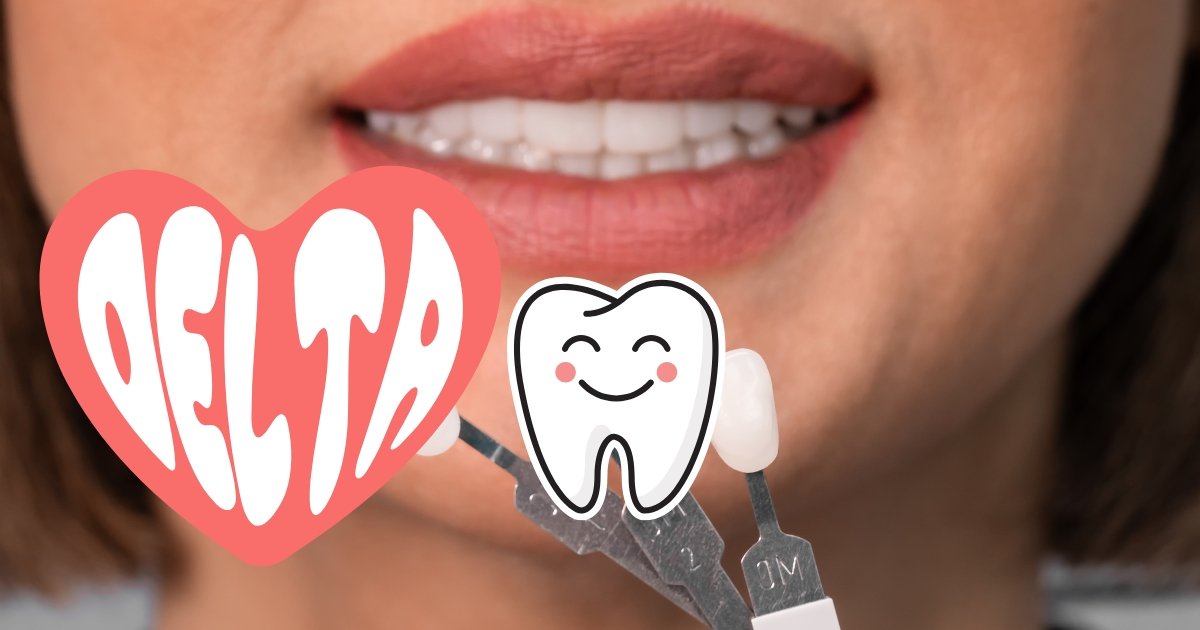
Delta Dental covers a portion of the dental implant expense, but this will depend on the specific plan. This insurance covers things like extractions, crowns, and bone grafting.
Delta Dental Implants Coverage:
Basic Plans – May have no implant coverage on them whatsoever.
NO without any surcharge~Upgraded Plans – 20-50% on implants.
Annual Maximum– Many of these plans have a $1,500-$2,500 limit per year.
Pre-Authorization: The recipient must obtain prior authorization in order to receive this service.
Please refer to your Delta Dental Plan to determine any specific implant coverage.
How to afford full dental implants?

If full mouth implants are too costly, there are different ways to save money.
Affordable Implant Options:
Insurance Plans – A few will cover a portion of the implantation.
Discount Dental Plan – Save Money on Major Dental Work out of Pocket.
Financing & Payment Plans– Lots of dentist’ offices have their interest-free financing.
Schools of Dentistry- Offer inexpensive implants performed with supervised training.
Travelling Abroad – Mexico, India, and Turkey all have cheaper implants.
Consider financing, insurance, and international options.
Who has the best dental insurance for implants?

The top dental insurance for implants varies depending on what it covers, annual limits, and out-of-pocket costs. To break it down, those are providers such as Delta Dental, Guardian, Cigna, Aetna, and MetLife, which have some limited coverage (30%-50%) in implants under certain premium plans.
Top Dental Implant Insurance:
Delta Dental PPO – 30-50% coverage of implants with an annual maximum of $1,500-$2,500.
Cigna Dental 1500 – The plan pays up to $1,500 per year, including implant-related work.
Guardian Advantage Gold – 50% payment of the implant fee following a waiting period.
Aetna PPO Plans – Implants are covered, but with very limited annual caps.
MetLife Dental PPO – Crowns, abutments, and implant surgery are included in some plans.
Humana Dental Savings Plus(DISCOUNTED IMPLANT RATES) – Discounts for implant services; not insurance.
Compare policies to determine which have the best coverage, cost structure, and waiting periods.
Does Aspen Dental do payment plans?

Yes, you will need to discuss payment plans with an office near you, as they do offer payment plans for dental implants and other work. They also work with third-party lenders, such as CareCredit, and provide in-house financing for qualified patients.
Aspen Dental Payment Options Plans:
CareCredit – No interest financing is available for short-term plans.
LendingClub – Available extended loan terms up to 84 months with low rates.
In-House Financing – Monthly payment plans for patients who have qualified.
Dental Membership Plans – The in-house savings plan at Aspen provides savings discounts on dental services.
Insurance Coordination – Assists in obtaining the most from dental insurance.
You can also call Aspen Dental to confirm what payment plans are available at a location near you.
Does dental insurance cover full mouth implants?

Many dental insurance plans do not cover full mouth implants, and may only pay a portion of services, such as extractions or crowns.
Ways to Get Coverage:
What Do Comprehensive Plans Cover In Achieving Implants? Some plans are willing to provide 20% to 50% of the acquisition cost for implants.
Medicare Advantage (Part C) – Some plans may include partial payment for implants deemed medically necessary.
State Medicaid Programs – Will pay in some cases for implants.
Employer/Privately Insured Plans – Some premium plans have an implant allowance.
You may want to refer back to your insurance provider for the precise scope of your coverage.
Alternatives and Comparisons Related Questions On Full Mouth Dental Implants Cost
Are implants cheaper than dentures?

Given the budget, oral health, and long-term goals, nationals must make decisions between dentures and implants. Implants are more permanent, longer-lasting, and feel like your own teeth, while dentures are less expensive, removable, but potentially uncomfortable over time.”
The Distinct Differences Between Dentures and Implants:
Long Durable -Implants can last 20 + yrs, dentures will last 5-7 yrs.
Comfort & Fit – Implants are more like natural teeth and stay in place without slipping; dentures can slip or be uncomfortable to wear.
Cost – The cost of dentures is between $1,000 and $3,000. Full mouth implants have a price of $20,000 to $50,000.
Chewing & Speech –Implants can chew better than dentures and speak more clearly.
Bone Health – Implants keep the bone from disentegrating while dentures do not.
Implants are a more permanent and expensive solution. When you’re worried about the price, you might consider dentures.
Is full mouth reconstruction worth it?

They are more costly than dentures, yes, but the implants are longer-lasting and easier to care for. A single implant can range between $3,000 to $6,000, and full mouth implants can run $20,000 to $50,000. The cost of dentures is between $1,000 and $3,000 per arch.
Dentures or Implants: Cost Comparison:
Cost: Single tooth implant costs can range from $3,000 to $6,000.
Full mouth Implants – $20,000-$50,000
Snap-on Dentures (with Implants) – $10,000-$20,000
Drawbacks of Conventional Dentures – $1,000-$3,000 per Arch
Maintenance – dentures need realining and to be replaced every 5-7 years, whereas implants are for life.
Dentures are less expensive upfront, but implants offer better return-on-investment over the long run by preventing bone loss and future dental complications.
Is full mouth reconstruction covered by insurance?

Yes, full mouth reconstruction is worth it for those with serious dental issues. Reconstruction – It replaces missing teeth with implants, crowns, bridges, or veneers to restore both function and beauty, as well as oral health. It is costly between $15,000 and $60,000 or more, but it enhances chewing, speaking, and confidence, and it eliminates any future dental problems.
Advantages of a Full Mouth Reconstruction:
Restores Your Chewing Ability Back to 100% – Replaces missing, damaged, or worn teeth.
Prevent Bone Loss – Implants help to preserve jawbone structure while dentures do not.
Improves Appearance – Repairs tooth injury, misalignment, and bite.
Long-Term Investment – If done well, performance can span 20+ years.
Custom Treatment Plan – Includes implant bridges, crowns, and veneers as needed.
If several teeth have been compromised or are missing completely, full mouth reconstruction provides a long-term, high-quality solution for both oral strength and a beautiful smile!
Why are full-mouth implants so expensive?

Full mouth dental implants are costly because of the premium-grade materials, surgical skill, and many stages required. Costs vary and depend on where you are getting it done, the type of implant, and how many teeth you are replacing, but it can range from $20,000 to $50,000.
The following conditions make it more expensive:
Material Strength – Both titanium and zirconia implants are durable and biocompatible.
Surgical skill – Needs oral surgeons and prosthodontists.
Other Procedures – Bone grafting, sinus lifts, and extraction add to the expense.
Custom Prosthetics- You can have dental crowns, bridges, or dentures made for your mouth specifically.
Cutting-Edge Technology – With 3D imaging, guided surgery, and digital impressions, we do precision right.
Implants are expensive, but they are a lifelong, beneficial, great investment for your mouth.
Will insurance cover dental implants?

Most dental insurance plans don’t cover implants in full, but may offer partial coverage for certain procedures such as extractions, bone grafts, or crowns. Coverage will vary depending on the type of policy, who provides the policy, and necessity.
Dental Implants Insurance:
Personal dental insurance – Partial reimbursement of the outlays of the implant and the crown.
Medicare never covers implants unless in special medical situations.
Medicaid – It is state-specific coverage, but relatively limited.
Employer Plans – Certain premium dental plans offer reimbursement.
Discount Plan – Some dental discount plans provide reduced costs for implants.
To realize the full benefits, be sure to consult with your provider and consider financing options.
How can I afford implants?

If implants feel too pricey, there are a few options for financing the procedure to make it more accessible, such as insurance, dental schools, and payment arrangements.
Some Ways to Pay for Dental Implants:
Dental Insurance – A small portion of the cost can be covered by certain policies.
Dental Discount Plans – Provide treatment for less.
Dental Schools – Low-cost implants are offered at teaching clinics.
Payment Plans – A lot of dentists have payment plans where you pay every month.
Medical Credit Cards — CareCredit or LendingClub can take the sting out of high expenses.
HSA/FSA (Health Savings Accounts) – With tax-free money, you can use it for implants.
By researching these options, costs can be minimized and the implants can be more cost-effective.
Does Medicare Pay for Implants?

No, Medicare does not cover dental implants as it deems them to be cosmetic; however, depending on your health fund, they may offer a rebate. But certain Medicare Advantage (Part C) plans provide limited dental coverage, so there’s that.
When Medicare May Cover Devices:
Medical Necessity -When implants are necessary after an accident or illness, some partial coverage may be available.
Medicare Advantage Plans (Part C) – Many offer dental benefits, but the level of coverage can vary.
Supplementary Dental Plans – Might cover some of the cost of implants.
Other Financing – Look into dental schools, payment plans, or discount plans.
Traditional Medicare does not cover implants, and so it is important to find other forms of financing.
Additional Considerations Related Questions On Full Mouth Dental Implants Cost
How long do dental implants last?

Dentures made from dental implants last 20–30 years or more with care. The implant post is permanent (fixed like the natural tooth was); however, the crown may require replacement every 10-15 years because they are subject to daily wear and tear/adhesive breakdown, etc.
Features Causing the Longevity of the Implant:
Oral Hygiene – Keeping your teeth clean increases longevity: brush well, floss, and visit the dentist.
Lifestyle Choices – Smoking and a bad diet are common reasons implants don’t take.
Bite Force– Grinding your teeth (bruxism) can reduce the crown’s lifespan.
Jawbone Strength – A strong foundation is necessary for the long term.
Dental Visits – Regular cleanings can catch problems early.
Implants can be similar to natural teeth with good maintenance. They are a life-lasting replacement of missing teeth most of the time.
What is the cheapest way to fix all your teeth?

The least expensive method of restoring all teeth is usually full dentures, then implant-supported dentures, as they provide a more stable foundation at a reasonable cost.
Cheap Solutions to Repair All Teeth:
Conventional Dentures – Price: $1,000–$3,000 (Most economical yet perhaps not as stable).
Implant-Supported Dentures – (price: better fit and function for $6k-$15k).
where $10,000 to $20,000 Per Arch (fewer implants, cost-effectiveness). All-on-4 Implants – Price: $15,000–$30,000 (less implants, more value).
Dental Discount Plans help lower the cost of your treatments.
School of Dentistry – Provides low-cost dental services through monitored students.
Deciding which one is right for you will come down to budget, comfort, as well as durability needs.
What are the disadvantages of full mouth rehabilitation?

The full mouth rehabilitation is successful; however, it has some disadvantages: it is an expensive treatment, long long-duration treatment, and there may be complications.
Main Disadvantages:
Costly – Prices can vary from $20,000 up to $50,000 and higher!
Time-Consuming – It may be several months to a year before the adoption becomes finalized.
Multi Procedure – The need for bone grafts, extraction, and surgery could be needed.
Potential Discomfort – Swelling and achiness will be part of its healing process.
Chance of Surgery Failure – Healing may not occur, or complications could arise that may cause failure.
Expensive but worth the cost, full mouth rehabilitation considerably restores oral function and overall appearance.
How much do implants cost in NYC?

Dental implants NYC – The cost of dental implants in NYC varies between $3,000 and $6,000 per implant; full-mouth implants can cost $30,000 to $80,000, depending on the procedure and materials used.
NYC Dental Implant Cost Explained:
Single Tooth Implant: $3,000-$6,000 (Implant replaces the missing root, Abutment connects the implant to the crown, Crown is the part seen above the gums).
All-on-4 Full Mouth Implants: $30,000 -$50,000.
All-on-6 or All-on-8: $50,000 – $80,000 (even stronger).
Other Expenses: The bone grafting, the extractions, and X-rays can cost an additional $1,000 – $5,000.
NYC is more expensive than the national average, but financing is an option.
What are the best ways to finance dental implants?

Dental implants are costly, and while you may have a variety of other financing options available to you, not all will cover the dental procedure.
How to Finance Dental Implants:
Dental Insurance: Certain insurances provide 20-50% coverage towards the cost of implants.
Payment Plans: Most dentists have monthly payment plans.
Medical Loans: Implant financing is offered by companies such as CareCredit or LendingClub.
HSA & FSA (Health Savings Account and Flexible Spending Account): You can use pre-tax dollars to pay for implants.
Dental Schools: Dental schools in NYC provide dental implants at an affordable price under the supervision of students.
If possible, consider different alternatives that can keep initial costs down.

Dr. Niraj Ghanghoriya is a passionate dental surgeon with over 12 years of experience in clinical dentistry. He completed his BDS from the prestigious Sri Aurobindo Institute of Dentistry in 2012 and specializes in painless root canals, smile makeovers, and preventive oral care. He is the Founder of ToothCareUSA.com and a registered Dental Surgeon (Reg No: A-03649) based in Indore. Known for his patient-first approach and clear communication, Dr. Ghanghoriya aims to make dental knowledge accessible to everyone. When he’s not in the clinic, he enjoys writing informative dental blogs to help people take better care of their oral health. He reviews every article on this site to ensure medical accuracy and patient safety.



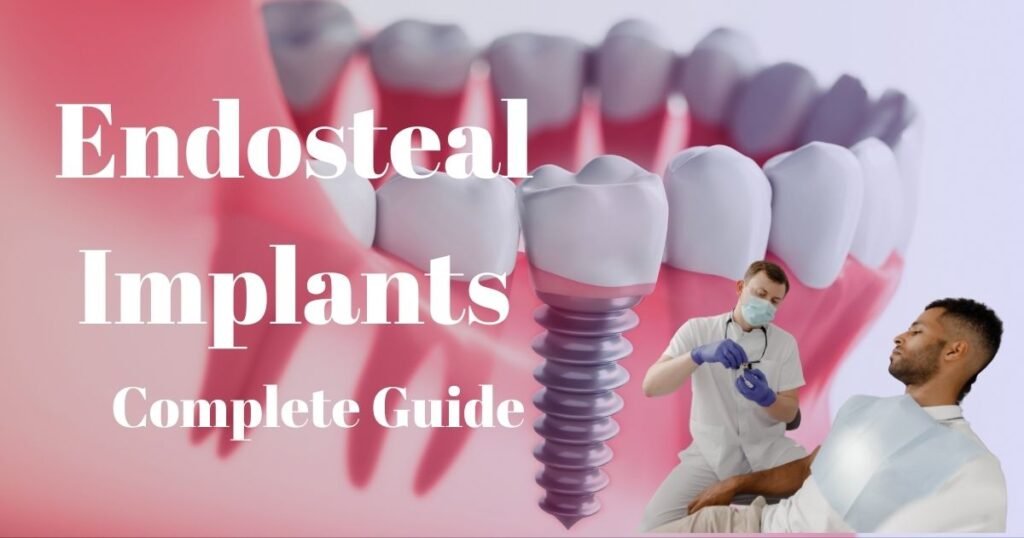
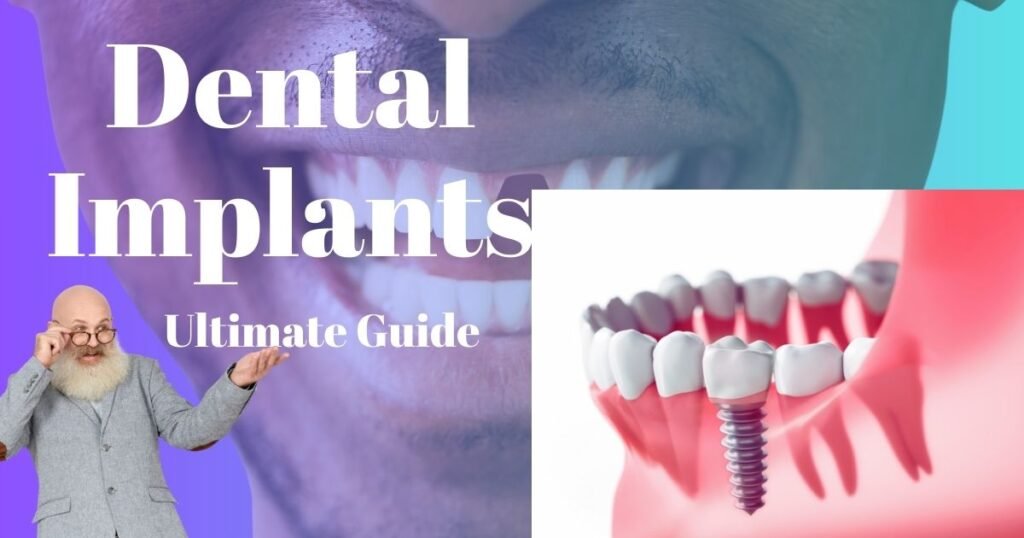
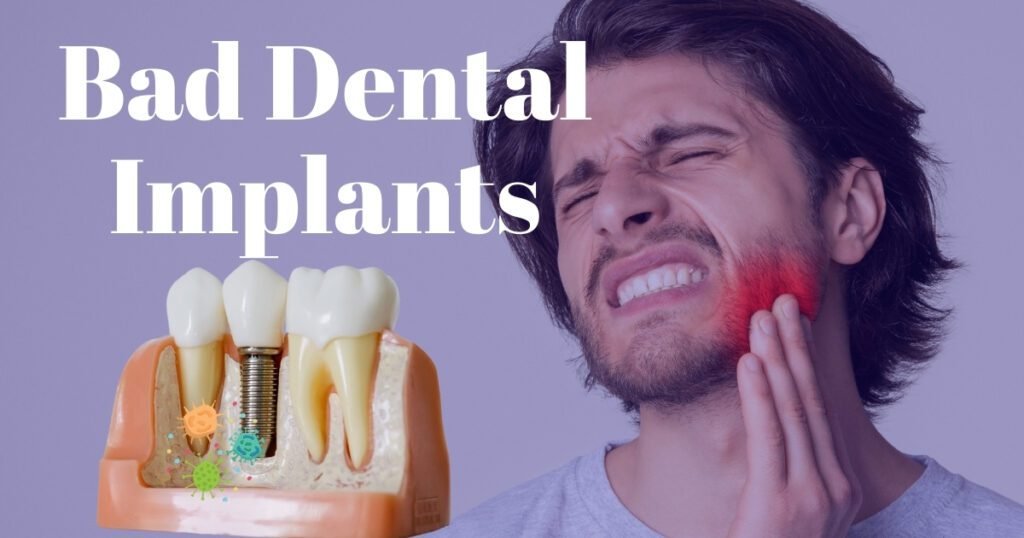
Nice post. I learn something totally new and challenging on sites
I stumbleupon on a daily basis. It will always be useful
to read articles from other writers and practice something from their websites.